By Kyle Orton (@KyleWOrton) on 29 July 2017
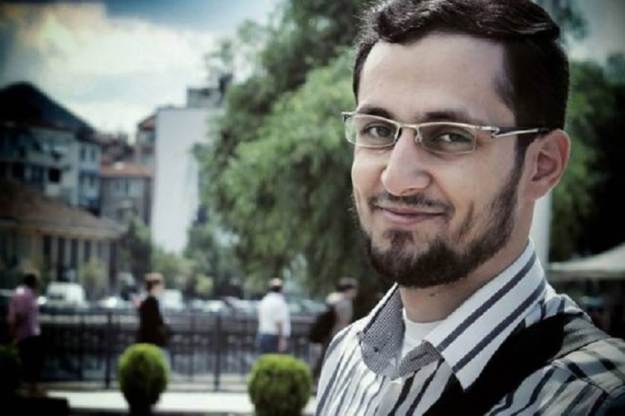
Baraa Kadek (Riyan Meshal) [image source]
By Kyle Orton (@KyleWOrton) on 29 July 2017

Baraa Kadek (Riyan Meshal) [image source]
By Kyle Orton (@KyleWOrton) on 28 July 2017
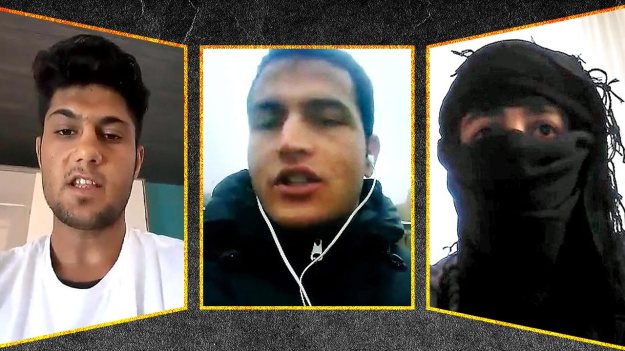
Screenshots from the bay’a-martyrdom videos of: Riaz Khan Ahmadzai (Muhammad Riyad), Anis Amri, Mohammad Daleel (source)
The Islamic State (IS) has escalated a campaign of global terrorism over the past few years, exactly as it was losing overt control of territory. In 2016, IS consolidated a model of guiding and claiming attacks in the West and elsewhere via is media channel, Amaq. The outlines of this have long been known. Now there is significant new detail thanks to a four part reporting series in the German newspaper BILD by Björn Stritzel, who contacted Amaq and posed over many months—in consultation with Germany security agencies—as a potential terrorist. Continue reading
By Kyle Orton (@KyleWOrton) on 8 June 2017
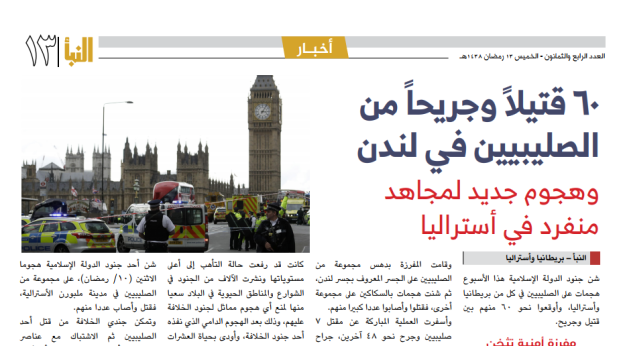
Al-Naba 84
The eighty-forth edition of Al-Naba (The News), released by the Islamic State on 8 June 2017, included a section on the terrorist attacks in Britain, on London Bridge, on 3 June, and in Australia, the siege of the apartment block in Melbourne, on 5 June. Continue reading
Published at The Telegraph
By Kyle Orton (@KyleWOrton) on 21 April 2017

Security forces stand guard after attack in Paris, 20 April 2017 (CREDIT: ETIENNE LAURENT/EPA)
In Paris last night a gunman parked his car, stepped out, and opened fire on a police van outside a Marks & Spencer’s on the Champs Élysées. One policeman was murdered; two were wounded. A female tourist was also injured. The attacker was killed by police as he tried to flee and continue his rampage. Within two hours, the Islamic State (ISIL) had claimed the attack via its Amaq News Agency, and, rather unusually, had named the killer: “Abu Yusuf al-Baljiki”.
It has been widely reported that “Abu Yusuf the Belgian” is really Karim Cheurfi the Frenchman, a 39-year-old imprisoned for fifteen years after being convicted for three counts of attempted murder in 2001. Notably, two of his intended victims were police officers. French media has reported that Cheurfi was briefly arrested on 23 February after expressing an intent to kill law-enforcement officials, but released due to lack of evidence; the Interior Ministry refused to comment. Continue reading
By Kyle Orton (@KyleWOrton) on 18 April 2017
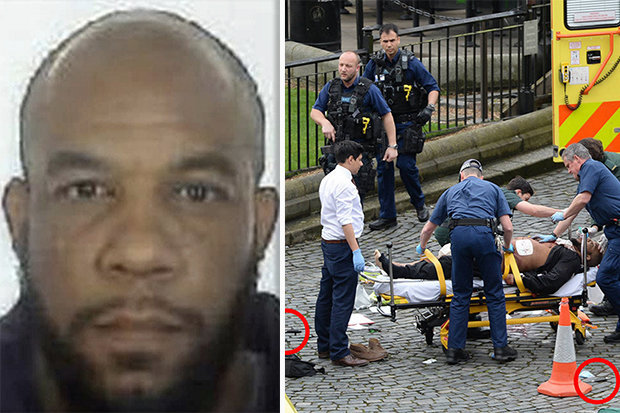
The 22 March attack outside Westminster by Khalid Masood is the most significant act of Islamist terrorism since the 7 July 2005 bombing by al-Qaeda of the London public transport system. Masood’s attack highlights a number of historic trends in British jihadism and starkly poses the question of the extent of IS’s penetration of the United Kingdom. Continue reading
Published at The International Business Times
By Kyle Orton (@KyleWOrton) on 23 March 2017
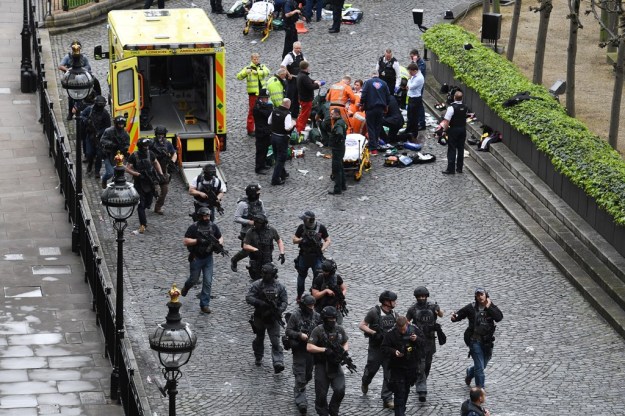
Aftermath of the Islamic State terrorist attack in Westminster, March 2017 (image source)
Just after 2:30pm yesterday afternoon, a terrorist mowed down pedestrians with a car on Westminster Bridge before jumping out near Parliament and stabbing a police officer to death. Three people were murdered, forty were injured, and the attacker was shot dead. The Islamic State (ISIS) has now claimed the attack.
The most important question is whether the terrorist had co-conspirators. Prime Minister Theresa May told Parliament this morning that it is “believed that this attacker acted alone”. It is crucial that this is not misread as saying that the attacker was a ‘lone wolf’. The arrests in Birmingham overnight suggest that this killer could have been part of a broader network, which would be consistent with the pattern of ISIS behaviour.
In a new report for the Henry Jackson Society, documents 152 foreign ISIS attacks in 34 countries since 2002, the vast majority in the past two years. In nearly three-quarters of the cases the attacks have a direct link to the organisation, and those without often have accomplices who assist in the atrocities in some way. Just 15% of the attacks have been by inspired individuals, who had no demonstrated connection to ISIS or anyone else in planning or executing their attack. Continue reading
By Kyle Orton (@KyleWOrton) on February 4, 2017
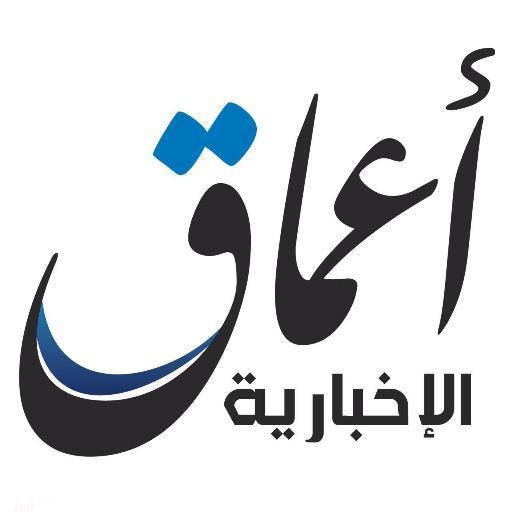
With the attempted terrorist attack using machetes at the Louvre museum in Paris yesterday by Abdullah Reda al-Hamamy, whose social media history shows statements at least sympathetic to the Islamic State (IS), it raises once again the question, making no assumptions about al-Hamamy’s motives, of how connected the organization headquartered in Raqqa is to the attacks taking place around the world under IS’s banner—and how we would know.
As IS’s attacks outside of the statelet it has built in Iraq and Syria increased in frequency over the last year, a rather routinized mechanism has developed for attributing blame: IS claims the atrocities—or attempted atrocities—through Amaq News Agency. Continue reading
By Kyle Orton (@KyleWOrton) on January 7, 2017

Abdulkadir Masharipov (source)
It was an hour into 2017 that the Islamic State (IS) carried out its first act of mass-murder: an IS jihadist attacked the Reina nightclub in Istanbul, massacring thirty-nine people. IS has been attacking Turkey with increasing frequency over the last two years and, since Turkey intervened directly in Syria in August, IS’s media output has elevated the Turks into a priority target for terrorism. The public claim of responsibility by IS for the Reina attack suggests that we are moving into a new era in terms of how IS treats Turkey. Turkey’s increasingly warm relations with Russia have angered many Muslims around the world, providing jihadists an incentive and opportunity, and providing al-Qaeda political space it seemed to have lost to co-opt the Syrian rebellion. It is therefore likely that more bloodshed is to come for Turkey. Continue reading
By Kyle Orton (@KyleWOrton) on November 23, 2016
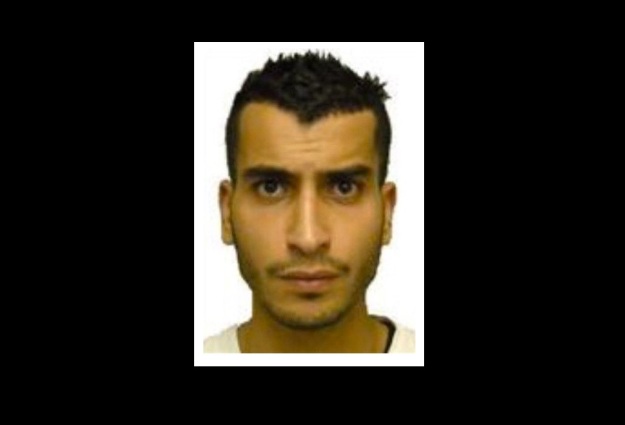
Abdelilah Himich (Abu Sulayman al-Firansi) [image source]
By Kyle Orton (@KyleWOrton) on September 18, 2016
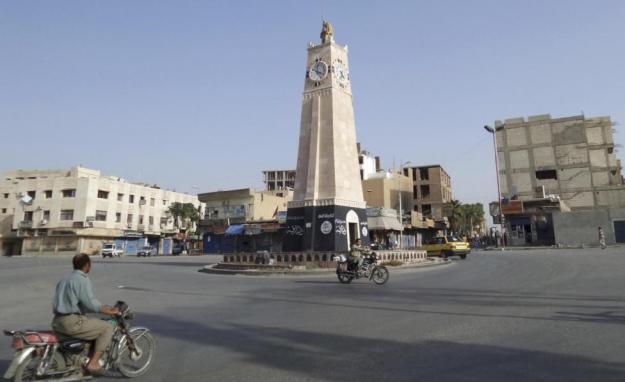
Raqqa
The Coalition announced on Friday that it had killed Wael al-Fayad, more fully Wael Adil Hasan Salman al-Fayad, also known as Wael al-Rawi, Dr. Wael, and Abu Muhammad al-Furqan, a reference no doubt to al-Furqan Media, IS’s oldest and most important propaganda organ, which al-Fayad controlled. The head of IS’s Media Council, thus a key member of the group’s propaganda output, al-Fayad was a member of its Shura Council. The obscurity of his name is likely a testament to his seniority and importance within IS. [UPDATE: This turned out to be correct, though Abu Muhammad’s real name was Wael al-Ta’i, as IS revealed in May 2021, and he had also used the names “Ahmad al-Ta’i”, the media emir appointed in “the State’s” second cabinet back in 2009, and “Abu Ubayda Abd al-Hakim”, the mysterious senior IS operative who made a series of media “appearances” in 2011 and signed several captured letters addressed from IS-centre to the wilayats after 2014]
Continue reading